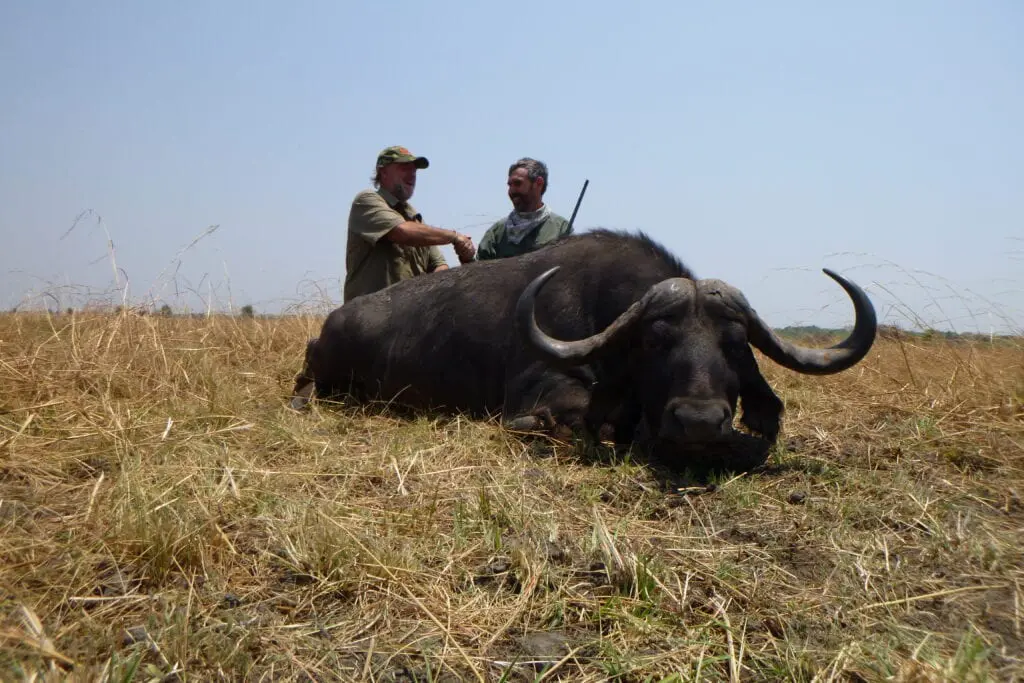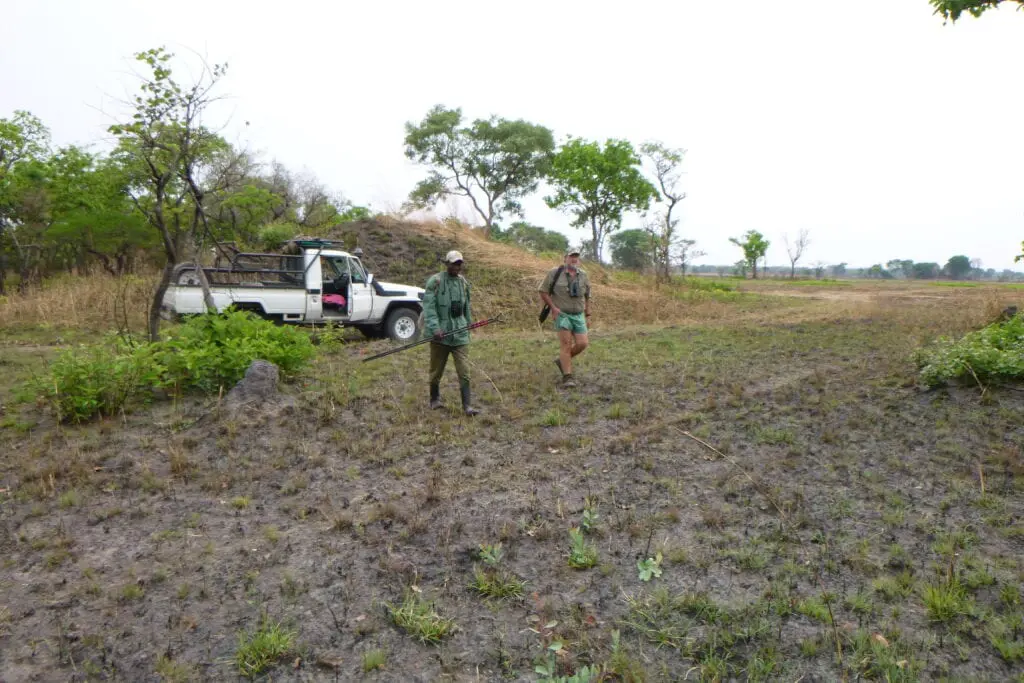A few hunters returning after restrictions lifted
Story by Craig Nyhus, Lone Star Outdoor News
This article originally appeared in the Nov. 27, 2020 print issue of LSON.
Dan Allford just returned from a Zambian safari, and said if you’re thinking about going, go.
Several African countries have re-opened to travel and hunting opportunities, including Namibia, South Africa, Mozambique, Tanzania and Zambia.

Allford, from Houston, said his trip had been planned for about a year.
“I had to change a bunch of things,” he said.
Allford’s concerns in going mimicked the concerns of many travelers. Getting there, of course, but more so getting back.
“The options kept changing,” he said. “On Emirates, I would have needed a Covid test within 72 hours of going. On the return, the folks going to Europe were scrambling because they had to get a Covid test to go back.”
That’s no easy task in places like Zambia.

Working with travel consultants Travel with Guns, Allford settled on Air Ethiopia, with direct flights from and to the U.S.
Allford had made a few prior trips to Namibia for plains game hunting, but after a trip to the S.A.A.M. Shooting School in West Texas and shooting the charging buffalo targets, he said to his friend, “We have to go do this.”
He hunted with safari operator Greg Michelson of GM Safaris Zambia.
“I was only one of two hunters that showed up this year for him,” Allford said.
Michelson had hassles of his own, since he operates in both Zimbabwe and Zambia.
“Had he gone back home to Zimbabwe, he would have had to quarantine two weeks,” Allford said. “He sat for a month in Zambia waiting for me to avoid that.”
Allford said his hunt was exceptional.
“It was excellent,” he said. “It was a true wild area.”
He got his Cape buffalo early, then targeted a big sable, getting his after five days, and took a few other animals. The last three days were spent unsuccessfully seeking a bushbuck.
“Those things are really hard to spot,” he said.
Patrick Wright of TWG Travel said the agency has had clients in Africa since June.
“South Africa opened in October to other countries,” he said. “You need a negative Covid test.”
Clients still have been hesitant, though.
“People wonder if they are going to get stuck in Africa,” he said. “And everyone asks about refunds, and the short answer is no, refunds aren’t guaranteed. That’s a hesitation for a lot of people. But some people are willing to take the risk.”
Wright said TWG’s bookings are way down.
“We’re doing three or four per week instead of 10 to 12 per day,” he said.”
Wright said when the coronavirus scare hit in March, TWG had 20 passengers stranded on the ground when carriers began cancelling flights.
“The saving grace was Ethiopia Airlines,” he said. “They got everyone home.”
Jill Potash of Esplanade Travel said the firm had clients who have recently traveled to Mozambique, Zimbabwe and Namibia, with several set to go to South Africa soon.
“The clients returning from Mozambique, Zimbabwe and Namibia did not have any issue re-entering the U.S.,” she said.
A negative COVID test is not required to return to the U.S., but Potash said there are certain states requiring a quarantine period upon entering.
“When we make international travel arrangements for our clients, we make sure they have the most up-to-date requirements for the countries they visit and their return into the U.S.,” Potash said.
Wright said TWG has clients currently in Namibia, with several more schedule to head to the Dark Continent soon.
“We do recommend using services like Ripcord or Global Rescue to help deal with the unknowns,” he said.
Allford said hunters should go if they are able, as the communities need their help.
“When I pull the trigger, half of the meat goes to the community and half of the trophy fee goes to the community,” he said. “All of the people were excited and wanted to be in the pictures. They need the money. People need the meat.”
Allford didn’t hold back when discussing the Covid lockdowns and restrictions.
“Originally intended to flatten the curve and avoid overloading hospitals, they have become ill-advised policy devastating the global economy,” he said. “Politicians who make the policies are largely unaffected. But small businesses and individuals are being crushed. The U.S. has the luxury of printing $3 trillion in additional debt and using the money to soften the blow. Other countries are less fortunate.”
Allford said Zambia derives 8 percent of its gross domestic product from tourism, mainly hunting.
“Most residents live on less than a dollar a day,” he said. “The lockdown caused most travelers to cancel their trips. This means fewer dollars paid to the locals, staff reductions and reductions in anti-poaching programs. Poachers place snares to trap wild game, and illegal snares are indiscriminate.”
Allford witnessed and photographed numerous snares on his trip and observed a young lion with his paw torn off by a poacher’s snare.
“If you advocate for lockdowns, you advocate for crushing economies and for human and animal suffering,” he said.
Allford said for him, the travel wasn’t that much extra hassle, and getting his guns through went relatively smoothly.
“You get a test, you wear a mask on the airplane,” he said. “Use the travel consultants, they will help you avoid any issues, like flying back through certain European countries.
“But go. The people need our help.”


